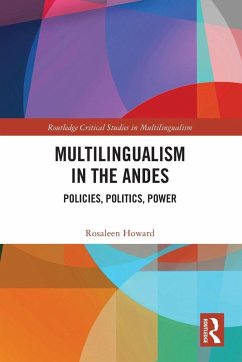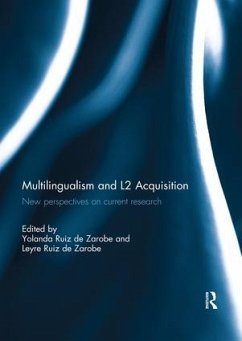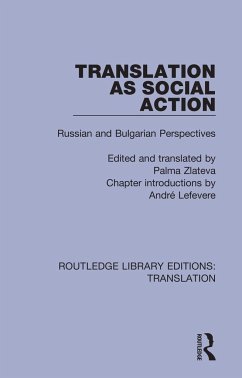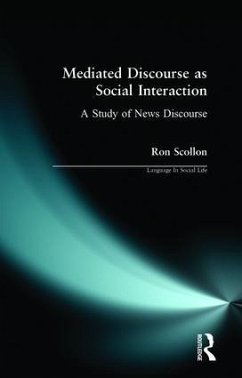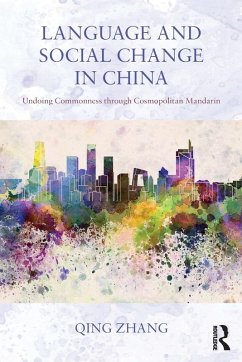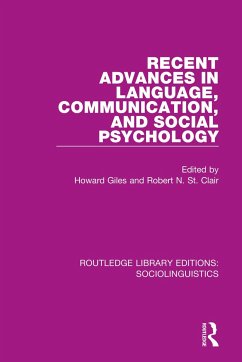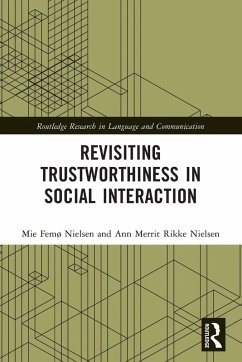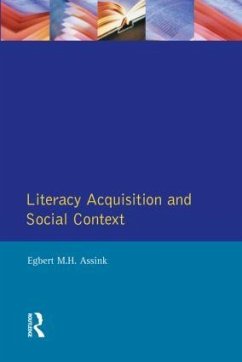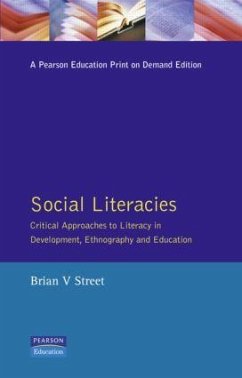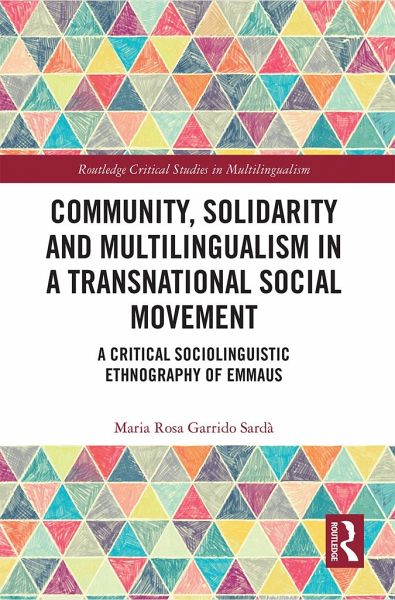
Community, Solidarity and Multilingualism in a Transnational Social Movement
A Critical Sociolinguistic Ethnography of Emmaus
Versandkostenfrei!
Versandfertig in 1-2 Wochen
55,99 €
inkl. MwSt.
Weitere Ausgaben:

PAYBACK Punkte
28 °P sammeln!
*RUNNER UP FOR 2022 BAAL BOOK PRIZE* Community, solidarity and multilingualism in a transnational social movement presents a critical sociolinguistic ethnography of the Emmaus movement that analyses linguistic and discursive practices in two local communities in order to provide insight into solidarity discourses and transnational communication more broadly. Integrating perspectives from a range of disciplines, the monograph seeks to understand the ways in which social movements are maintained across disparate communities grounded in shared cultural referents and communicative practices but no...
*RUNNER UP FOR 2022 BAAL BOOK PRIZE* Community, solidarity and multilingualism in a transnational social movement presents a critical sociolinguistic ethnography of the Emmaus movement that analyses linguistic and discursive practices in two local communities in order to provide insight into solidarity discourses and transnational communication more broadly. Integrating perspectives from a range of disciplines, the monograph seeks to understand the ways in which social movements are maintained across disparate communities grounded in shared cultural referents and communicative practices but not necessarily a shared language. The book focuses on Emmaus, the solidarity movement that emerged in post-war France which brings formerly marginalised people together with others looking for an alternative lifestyle into live-in communities dedicated to recycling work and social projects. The book first offers a historical overview of the Emmaus movement more generally, moving into an account of its development and spread across national and linguistic borders. The volume draws on data from two Emmaus communities in Barcelona and London to analyse the everyday communicative and discursive practices that appropriate and resignify the shared transnational movement ideas in different socio-political, economic, historical and linguistic contexts. Community, solidarity and multilingualism in a transnational social movement considers the social implications of local practices on the situated (re)production and evolution of transnational social movements more generally and will be of particular interest to students and researchers in sociolinguistics, linguistic anthropology, discourse studies, cultural studies, and sociology.





